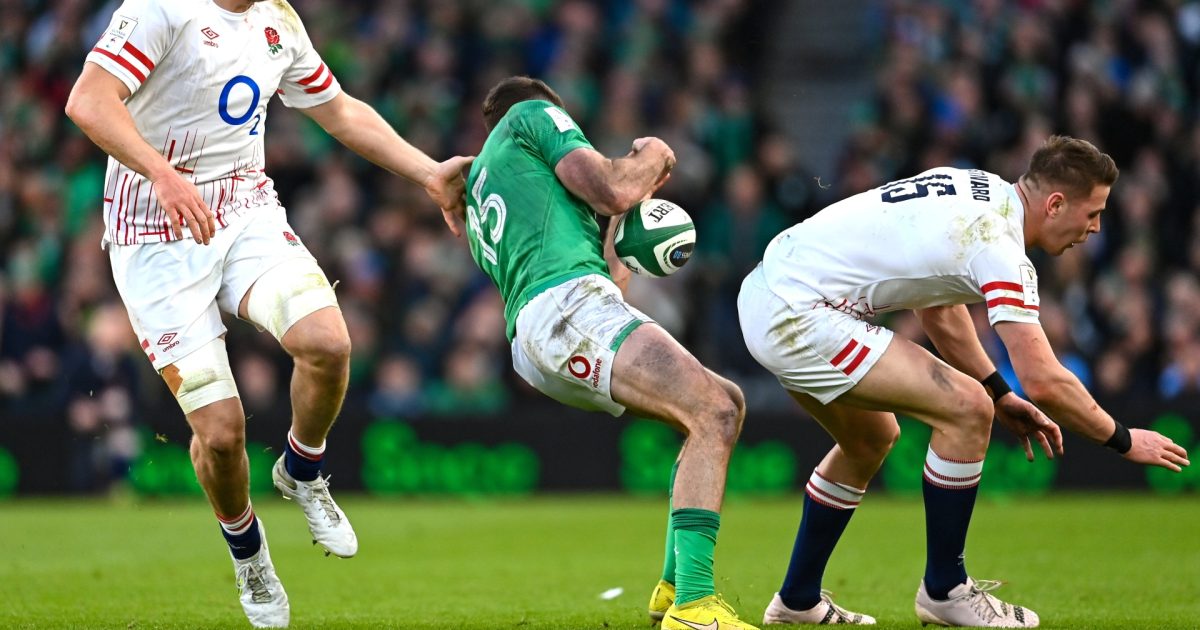Six Nations statement: Freddie Steward red card 'not upheld'

Freddie Steward has been exonerated following his red card sustained when playing for England in last Saturday’s Guinness Six Nations game away to Ireland. The full-back was sent off for a first-half collision with Hugo Keenan, his opposite number, and the decision taken by referee Jaco Peyper ignited a massive debate over whether the red card was merited or not.
Four days later, it has now emerged that in the eyes of a Six Nations disciplinary hearing, the sending-off wasn’t warranted and Steward – whom they decided should only have been yellow-carded by Peyper – is now free to carry on playing without any suspension.
A Wednesday morning statement read: “England full-back Freddie Steward appeared before an independent disciplinary committee via video link on Tuesday evening having received a red card in the Guinness Six Nations match between Ireland and England on Saturday.
“The red card was issued as a result of the referee concluding that the player had acted contrary to law 9.13 (a player must not tackle an opponent early, late or dangerously. Dangerous tackling includes, but is not limited to, tackling or attempting to tackle an opponent above the line of the shoulders even if the tackle starts below the line of the shoulders).
“The independent disciplinary committee consisting of Nigel Hampton (chair, New Zealand), Frank Hadden (Scotland) and John Langford (Australia) heard the case and considered all the available evidence, including multiple broadcast angles and submissions from the player and his representative.
“After hearing the submissions, the disciplinary committee formally amended the law which was breached to law 9.11 (players must not do anything that is reckless or dangerous to others including leading with the elbow or forearm, or jumping into, or over, a tackler).
“The player denied that he had committed an act of foul play worthy of a red card as described in law 9.11. Having reviewed all the evidence, the committee decided that:
- (i): head contact with an opposing player had occurred;
- (ii): there had been an act of foul play in breach of law 9.11 in that the player had been reckless in his actions and in his upright positioning as he approached and came into highly dangerous contact with the other player;
- (iii): there were sufficient mitigating factors including the late change in the dynamics and positioning of the opposing player which should have resulted in the issue of a yellow card rather than a red card.
“On that basis, the committee did not uphold the red card and the player is free to play again immediately. The committee acknowledged that match officials are required to make decisions under pressure and in the heat of a live match environment.”
England were trailing 10-6 in the round five match in Dublin when Steward was sent off and while they closed to 10-9 during the second half, the numerical imbalance eventually told as Ireland went on to clinch the Grand Slam with their 29-16 win.
































